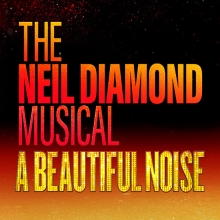Vote for Independency: Keeping Audiences Engaged in 1776
Vote for Independency: Keeping Audiences Engaged in 1776
By Kathryn Harris on July 5, 2010
in
Show/Author Spotlight
| Tags:
peter stone, sherman edwards, Show Spotlight
 This holiday weekend, there's no more appropriate show than 1776. The well-loved musical takes audiences back to the Continental Congress in 1776, where delegates from the 13 colonies met to discuss the possibility of independence from Great Britain. The show does an amazing job of making the audience really feel the isolation and pressure the delegates felt, making history truly come alive. Through the placement of songs, the use of letters, and the use of a countdown, this famous event in American history feels exciting and surprising.
This holiday weekend, there's no more appropriate show than 1776. The well-loved musical takes audiences back to the Continental Congress in 1776, where delegates from the 13 colonies met to discuss the possibility of independence from Great Britain. The show does an amazing job of making the audience really feel the isolation and pressure the delegates felt, making history truly come alive. Through the placement of songs, the use of letters, and the use of a countdown, this famous event in American history feels exciting and surprising.1776 is unusual for a musical in that it has a very long stretch of book without song. Generally in musicals, it's an unspoken rule that there should be at least one song per scene. But in 1776, the lengthy third scene in the first act doesn't have a song until the very end of the scene - and it's a very short song at that. The first thirty pages of the act is composed entirely of dialogue. In fact, the vast majority of songs don't even take place during the Congress itself, but occur shortly before, shortly after, or outside its walls. Without songs to give some release to the Congressional scenes, the audience is able to feel the impatience and oppression that the delegates felt. Moreover, because the audience knows a song is coming, there's an added impatience for the song to occur, enhancing the impatience the delegates feel over resolving the fate of the colonies. Audiences, unlike the delegates, know exactly how things will end - but the absence of songs during the actual Congress scenes creates additional tension, helping keep the story exciting.
The use of letters also helps the audience feel the same excitement as the delegates. Throughout the show, John Adams and his wife, Abigail, communicate through letters. As they express their longing to be together, the audience sees firsthand the isolation the delegates feel. Unlike modern times, when the trip from Philadelphia to Boston is an easy plane or train ride away, the distance at that point in history required an involved journey. John Adams' distance from his wife for such a long time doubtless makes him even more eager to settle the fate of the colonies. Since the audience witnesses the love the couple has for each other through their letters, the audience has another reason to anxiously hope the Congress ends soon. Additionally, letters from George Washington from the battle further pressures the delegates to resolve things quickly - and reminds the audience that the Continental Congress didn't happen in a vacuum. Its actions and decisions - and lack of decisions - directly affected the lives of the soldiers fighting. Those letters from Washington therefore add a dimension to the story that the audience may not have thought of, keeping the story exciting.
Finally, 1776 uses the fact that the audience knows the show's outcome to create more excitement. Because all audiences know that on July 4, the delegates sign the Declaration of Independence, the show has an actual countdown on stage. This countdown lets the audience know that time is running out; the delegates obviously find a resolution on July 4, but when there are still petty squabbles on July 3, it almost seems hard to believe the delegates were successful in declaring independence when they did. Since the audience knows that they will, however, the excitement comes from learning how the delegates were able to full such a historic and difficult feat off by the July 4th deadline.
Making a musical about the founding of the United States may seem like a challenging task - how do you engage the audience when everyone knows how the story will end? But by making audiences experience the same excitement, isolation, and pressure as the delegates, 1776 makes this piece of history thrillingly come alive.
To license 1776, visit its MTI show page. Check out production photos and discuss 1776 on its MTI ShowSpace page.
























